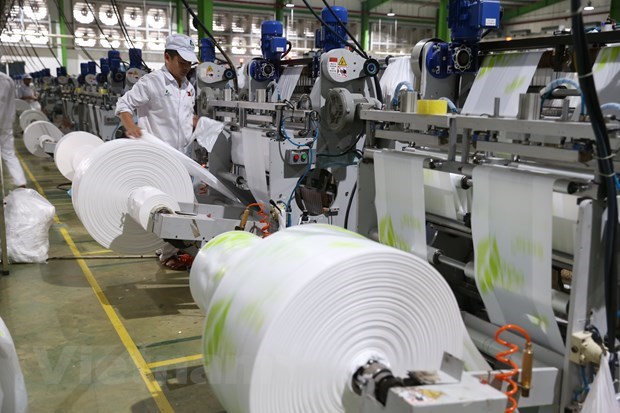HCMC – The American Chamber of Commerce in Vietnam, along with 13 domestic associations, has called for revisions to the recycling cost limits proposed in the prime minister’s draft decision.
In a joint letter addressed to the Ministry of Natural Resources and Environment and eight other relevant ministries, the associations emphasized the importance of conducting a rational and thorough review of recycling and packaging costs, considering the challenges associated with extended producer responsibility (EPR) contributions.
The draft decision, introduced by the Ministry of Natural Resources and Environment on July 27, is marked by disproportionately high and unreasonable fees, the associations noted, expressing concern that these elevated fees may impede production and hinder business operations.
The recycling cost limits specified in the current draft remain notably higher than the average recycling rates observed in 14 developed Western countries. Particularly noteworthy are the recycling costs for aluminum, exceeding the European average by 1.26 times, and for glass, an astonishing 2.12 times higher.
The underlying cause of these elevated rates lies in the draft’s failure to integrate circular economy, which overlooks the inherent value of material recovery.
For instance, the estimated fee for recycling paper, plastic, and metal packaging alone reaches an astronomical VND6.13 trillion annually. Strikingly, over 50% of this amount is allocated to support the recycling of high-value packaging materials, despite the recycling sector already being financially viable without such assistance.
These associations have raised concerns that the implementation of this framework could adversely impact both businesses and citizens.
As a measured alternative, they suggested modifying the calculation methods for recycling cost limits by adopting insights from the Packaging Recycling Organization Vietnam and local recycling practices.
In particular, they propose introducing a coefficient of 0.1 for materials with a higher recovery value compared to recycling costs. This adjustment would apply to metal and paper packaging, replacing the coefficients of 0.2 and 0.4, respectively, as stipulated in the draft proposal.
For other packaging types, the associations recommend coefficients of 0.3 for mixed paper packaging and rigid HDPE plastics, and 0.2 for rigid PET plastics.
Their proposed adjustments, they believed, could effectively halve the recycling fees for paper, plastic, and metal packaging, reducing the amount from VND6.3 trillion to VND3.15 trillion.
To streamline the implementation of EPR, the associations proposed shifting the contribution collection process from an upfront payment in early 2024 to an end-of-year settlement based on actual quantities.









